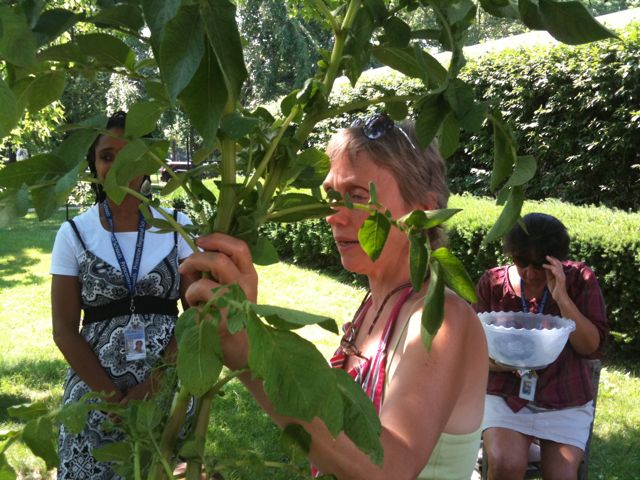
The Princeton School Gardens Cooperative fosters garden- and food-based education in the classroom, cafeteria and community.
PLANTING A SEED The group had its beginnings in the weeks that followed the fall of the towers on 9/11/2001, when Dorothy Mullen, a garden educator, planted a garden at an elementary school in our community. The group formed in 2006 and nearly a decade later, the Princeton School Gardens Cooperative has grown.
Teachers, parents and students and community members have built, filled, planted and harvested edible gardens at every campus in the Princeton Regional Schools district.
- These edible classrooms teach children where food comes from, and lessons of math, English, social studies, health, foreign languages, science, art and P.E. come alive.
- At workshops, teachers and parents are learning that children’s food choices affect their readiness to learn, their ability to comprehend – and their long-term health.
- The Robert Wood Johnson Foundation awarded a $30,000 grant to fund a pilot farm-to-school project at two elementary schools for the 2010-11 school year.
- The district’s wellness policy has been revised to reflect current food understanding and the draft proposal will be presented to the PRS School Board program committee in December.
- Food-waste composting efforts are under way.
- Chefs are providing lessons on flavor and cooking to students.
- Local businesses are using school garden produce – and funding the gardens.
- Grateful food pantries have accepted excess produce for those in need.
To ensure these efforts continue and expand, a core group of parents formed the Princeton School Gardens Cooperative, a 501c3 group. It has set new goals that include:
- Updating and expanding the K-5 NJ-standards garden-based lessons to pre-K-12;
- Offering mini-grants to teachers and community members with relevant projects;
- Providing nutrition2learning workshops for faculty, staff, parents and groups;
- Tasting and flavor classes and workshops, pre-k-12;
- Cooking and garden classes/after-school clubs, pre-K-12;
- Farmer visits to schools, pre-K-5;
- Fresh seasonal fruit bowls at the entryway to each school;
- Food marketing literacy seminars for educators and children;
- Garden residency programs for pre-K-5;
- Expanding and embedding the farm-to-school program for all schools; and
- Growing community with outreach efforts to surrounding businesses.
